11 Lessons From Mom about Becoming a Mother Myself
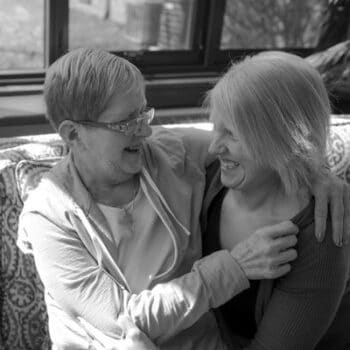
Perhaps the biggest lesson Mom is teaching me as we walk this journey together is how grief and joy are interconnected. It is not one or the other.
May 26, 2025
Jenni Engel lost her mom, Donna, to Alzheimer’s in 2020 after caring for her for 6 years. She is an adoptive mom of 2, a mental health therapist and photographer that specializes in documenting stories that embrace every season of life.
As we were starting our journey to grow our family through adoption, my mom, Donna, was diagnosed with Alzheimer’s. It would be three years before we brought a baby home. Mom was wheelchair bound and no longer verbal when she met her granddaughter. I remember placing my 8-pound baby in her arms thinking I would have to help her hold our daughter. But she didn’t need my help. She knew just want to do.
The disease was robbing her of so much every day. And yet, her brain had not forgotten how to hold a baby. Her motherhood was still a part of her.
A lot of who I am today — and I how mother — is because of my mother and my journey with her through Alzheimer’s. She was diagnosed at the age of 59, and she died just a few months after her 65th birthday. The lessons you read here I wrote while I was still actively caregiving for her (which is why they’re in the present tense) and they continue to guide me in my parenting today.
Show up. Be present. Each time I see my mom she teaches me the importance of being present. For a future-oriented thinker like me, this can be challenging. But if I want to connect with her, I have to show up, in the moment. I have to meet her where she is. We talk about what we see out the window, what’s on TV, what she is wearing, and the pictures in her apartment. If I choose not to engage her in the present, I miss her. These moments are all too fleeting to not show up.
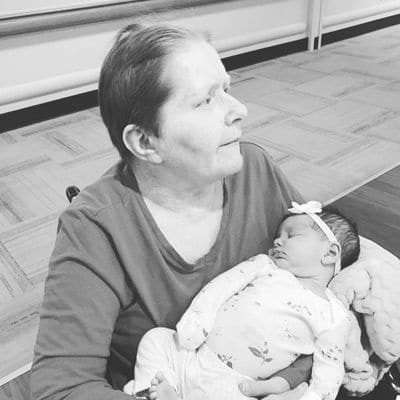
Some days are just difficult. She has taught me that some days are just difficult. There are days that she is agitated at anything and everything. It seems as if nothing works to decrease the agitation — not even Elvis songs or Diet Coke. On these days, she is teaching me acceptance, flexibility, and the power of pivoting. And how there is room for tears.
Cherish the sweet moments as they come. Despite how difficult some days can be, they seem worth it for the few sweet moments I still get to have with her. Moments of laughter as we remember something from my childhood. Moments of clarity where we can connect in conversation. Moments as she gets her hair done and shares how good she feels. Her smile beaming across her face. Moments that become glimmers. Glimmers etched not only in my memory but my soul.
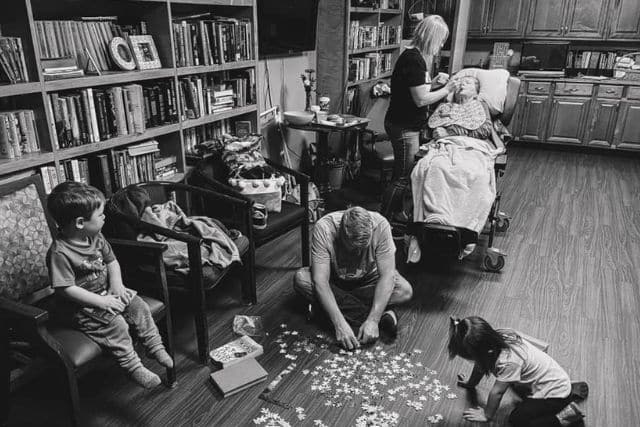
Find humor throughout each day. She is also teaching just how important, and special, laughing is. Some of my best time spent with mom is when we are able to laugh together. In the midst of all that caregiving requires, laughter truly is medicine. (Her laugh is one of the things I miss most living without her).
Be patient. Pause. Daily she teaches me to be patient. Due to mom’s disease, there are times that it takes her a while to answer a question or make a decision. Other activities of daily living now take her longer to complete, such as eating, getting dressed, and walking. If I attempt to rush her or change up her routine without warning, it only frustrates her, and we get nowhere.
Be a detective. Advocate as needed. In some ways I have become a detective. As she loses her words, she is losing her ability to communicate. When something hurts or bothers her, she has a hard time identifying it. (Often with Alzheimer’s, people experience misplaced pain, because they don’t know where the pain actually is.) She also can’t tell me how long her feet have been swollen, how she got a certain bruise, or what she ate at the previous meal. I have to pay attention to the details — and advocate as needed on her behalf.
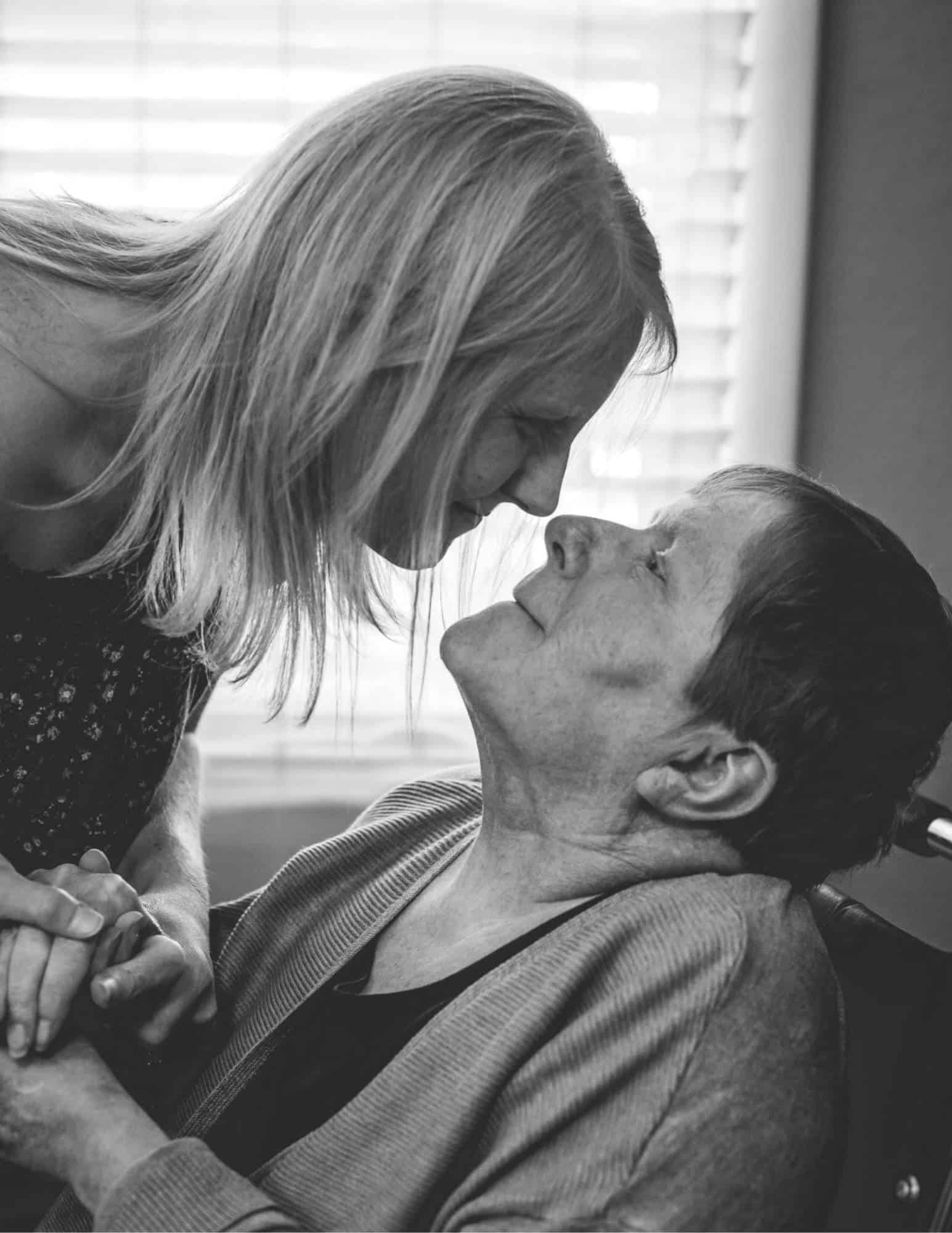
Choose your battles. Mom is teaching me to choose my battles. For instance, we can fight over putting on pajamas or taking a shower. (Once, it took four weeks to get her to shower.) Other times, the battles are with her day-to-day care, her safety, and what is best for her. Perhaps the biggest lesson here is that just because a battle may be present, that doesn’t mean it needs to be fought.
Don’t underestimate the healing power of a hug. Personally I’ve never been a fan of hugs. But this journey with her has taught me about the healing power of a hug. There is a pause and comfort that a hug brings to Mom. So much of the caregiving journey is complex. And yet, the simplicity of a hug is enough.
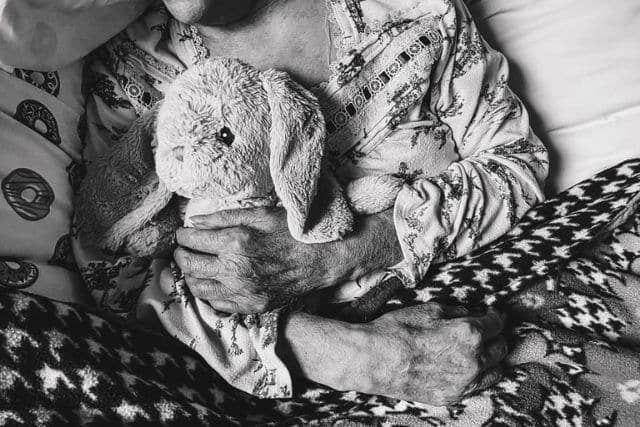
Remember you are human and have limits. As mom declines, there is very little she can do on her own. Opening her Diet Coke bottle has become a task for her. Though she may not have the words anymore, she communicates by placing the bottle in my hands and giving a nod. “This is her way of saying, ‘I need your help,’ and also, ‘I still trust you to be there for me.’”
Foster independence as much as possible. She is teaching me that there is no shame in admitting our limits. As she teaches this lesson, it is incredibly important for me to continue to find ways for her to keep her dignity; ways to foster independence even though she is fading a little bit more each day. It means asking for her input, even when words are hard to find, and celebrating the moments when she can still do something on her own—no matter how small.
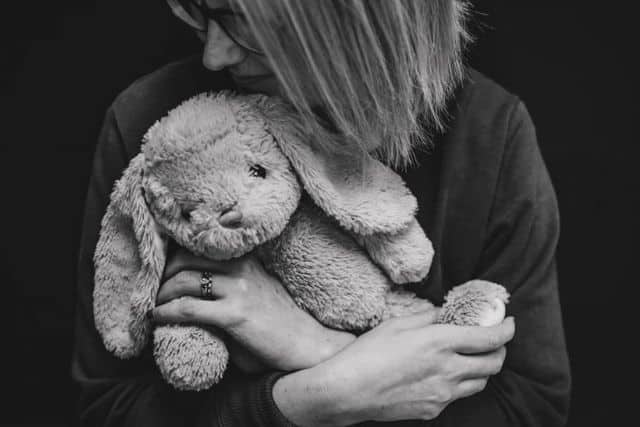
Grief and joy are a part of your story. Perhaps the biggest lesson Mom is teaching me as we walk this journey together is how grief and joy are interconnected. It is not one or the other. It is both/and. Both a part of our story. Now and always. And learning to hold them both at once is one of the most sacred things she’s ever taught me.